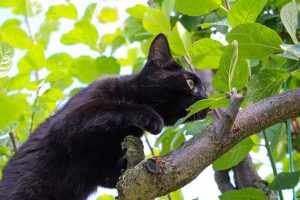Words as Animals!

I recently read the book Words as Eggs by Jungian analyst Russell Lockhart. The idea for the work, and the chapter from which the title comes, originated in one of Lockhart’s dreams. A voice in his dream said, “Do you not know that words are eggs, that words carry life, that words give birth?” (92). Lockhart later points out that this dream revelation isn’t exactly new in the larger scheme of things. In the beginning, it’s rumored that God spoke the world into existence: “the word is seed and gives birth to life and living things” (92). As eggs, words are constantly delivering new ideas and thoughts, filling our minds with possibilities and worlds we otherwise wouldn’t have access to.
A writer, I’m fascinated with anything to do with words and how they inform, form, and reform our surroundings—and us. They are magical and ordinary simultaneously, both grounding us in their multiple meanings as well as suggesting possibilities that seem limitless. That’s one reason why poetry and fiction in particular have such a profound grip on our imaginations and on us. In his exploration of his dream announcement, Lockhart does a compelling job of taking the reader into the soul and roots of language, demonstrating how mysterious and complex these 26 letters of the alphabet are that have an endless capacity to change shape.
So when I recently had an auditory dream that said “words are animals,” my antennae went up and the animal in me growled. What was the dream trying to convey by making this analogy?
Unlike humans, animals aren’t governed by consciousness. They simply exist, functioning instinctively, motivated by immediate needs: hunger, shelter, survival. Also, unlike most humans, animals follow their impulses. Their innate drives are their engines. They just do whatever they need to do as they live each day.
How then are words similar to what I’ve just described? If animals, at least domesticated ones, allow us to corral them, to absorb some of their otherness, their wildness, then words must give in to our domination in similar ways. The very idea that we are abstracting something vital from the language we use in our attempt to create order out of the chaotic mess that unruly letters can make saddens me. We’re draining something intuitive and spontaneous from the method we use to communicate with others and with ourselves.
The dream seems to be suggesting that as we domestic words, as we drain their animal characteristics from them, we are civilizing ourselves too much, becoming more alienated from our animal origins and perhaps coming to resemble more the robotic gadgets we’re surrounded by? That seems like a huge loss!
Lily Iona MacKenzie
A Canadian by birth, a high school dropout, and a mother at 17, in my early years, I supported myself as a stock girl in the Hudson’s Bay Company, as a long-distance operator for the former Alberta Government Telephones, and as a secretary (Bechtel Corp sponsored me into the States). I also was a cocktail waitress at the Fairmont Hotel in San Francisco, briefly broke into the male-dominated world of the docks as a longshoreman (I was the first woman to work on the SF docks and almost got my legs broken), founded and managed a homeless shelter in Marin County, co-created The Story Shoppe, a weekly radio program for children that aired on KTIM in Marin County, CA, and eventually earned two Master’s degrees (one in creative writing and one in the humanities). I have published reviews, interviews, short fiction, poetry, travel pieces, essays, and memoir in over 165 American and Canadian venues. My novel Fling! was published in 2015. Curva Peligrosa, another novel, was published in September 2017. Freefall: A Divine Comedy was released in 2019. My poetry collection All This was published in 2011, and Prolific Press published my poetry chapbook No More Kings in March 2020. I blog at http://lilyionamackenzie.com.
- Web |
- More Posts(19)